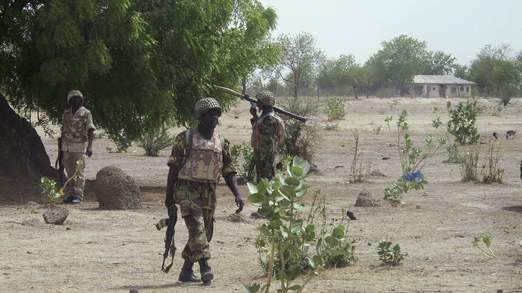by Tony Iozzo
Impunity Watch Reporter, Europe
MOSCOW, Russia – A Russian journalist was shot dead outside of Mackhachkala, the capital of the violent Russian Republic of Dagestan, on Tuesday.

Akhmednabi Akhmednabiyev, deputy editor for the local newspaper Novoe Delo and a contributor to Kavkazky Uzel, an online news publisher, was fired on while in his car just outside of his house at about 7:00AM local time.
While no particular motive or any specific articles authored by Akhmednabiyev are currently tied to the murder, the Investigative Committee has stated the “most likely version is that Akhmednabiyev’s murder is linked to his professional activities.”
Akhmednabiyev was notorious for accusing local authorities of persecuting and kidnapping Muslims in an extrajudicial manner. He also regularly reported on human rights violations during counterterrorism operations. According to Khadzhimurad Sagitov, editor in chief of Novoe Delo, Akhmednabiyev regularly received threatening phone calls and text messages from anonymous sources.
“We expected this… We knew that if not today, then it would happen tomorrow, or the next day,” Sagitov stated.
Russia is widely considered one of the most dangerous countries in the world for journalists, as 55 assassinations of individuals in the media have been confirmed since 1992. Just last month, a preliminary hearing was held in Moscow for the trial of five men charged with the murder of prominent investigative journalist Anna Politkovskaya, who was similarly gunned down near her apartment back in 2006.
The North Caucasus Republic of Dagestan is viewed as a particularly perilous region for journalists, as Akhmednabiyev is the 17th journalist to be killed in the region since 1993. The region has reportedly seen continuing low-level Islamist insurgency, high levels of organized crime, and regional corruption.
In 2009, Akhmednabiyev’s name was included on a “hit-list” of individuals that were being targeted allegedly as revenge for the deaths of security forces and civilians. The list was distributed on leaflets in Mackhachkala.
Another journalist included on the list, Khadzhimurad Kamalov, the founder of the Chernovik newspaper, was shot to death outside the newspaper’s office in Mackhachkala in 2011.
Akhmednabiyev survived an assassination attempt earlier this year, when his car had been shot at in a similar fashion to the incident Tuesday, but the police only investigated property damage in that case.
“He said that he will remain here, no matter what. I think he understood something like this could happen to him,” Sagitov stated.
Hundreds of mourners carried Akhmednabiyev’s body in a procession from a mosque to a local cemetery in Mackhachkala on Tuesday.
For more information, please see:
BBC News – Journalist Shot Dead in Russia’s Dagestan – 9 July 2013
The Independent – Russia: Journalist Murdered in Dagestan – 9 July 2013
New York Times – Journalist Assassinated in Violent Russian Republic – 9 July 2013
Reuters – Journalist Shot Dead in Russia’s Dagestan Province – 9 July 2013
RIA Novosti – Journalist Gunned Down in Dagestan – 9 July 2013
Impunity Watch – Five Defendants in Russian Journalist’s Murder Are Granted Jury Trial – 4 June 2013
Impunity Watch – Human Rights Watch Researcher’s Life Threatened – 8 October 2012

